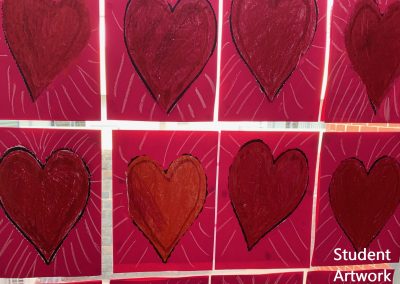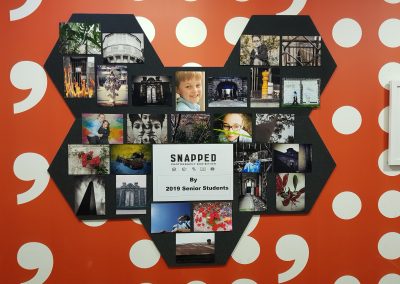Learning
Learning & Teaching
The Victorian Curriculum is the prescribed curriculum for all Victorian Schools (Foundation – Year 10).
“The curriculum is the common set of knowledge and skills required by students for life-long learning, social development and active and informed citizenship.” (http://victoriancurriculum.vcaa.vic.edu.au/)
There are eight Learning Areas in the Victorian Curriculum: Literacy and Numeracy have a high priority in the early years and form the basis for all learning. Children who are literate and numerate are able to transfer those skills to other curriculum areas.
A school-wide assessment schedule carefully tracks each student’s progress. The results of these assessments provide invaluable information to teachers, who use this data to plan rich learning experiences that are geared to each student’s point of need. It gives teachers opportunities to monitor, assess and confidently report on the learning achievement of every student.
How Students Learn
Cognitive Load Theory
Staff at St Paul’s Catholic Primary School have an understanding of Cognitive Load Theory and how students learn. Cognitive science informs teachers about how students learn best. ISweller’s Cognitive Load Theory (Sweller 2010), refers to the amount of new information that working memory can process at one time. Working memory can only process small amounts of new information at one time. Without multiple opportunities to practise this new information, it is quickly forgotten. St Paul’s has developed instructional techniques that align with the characteristics of working memory. Daily Reviews and retrieval practice help the transference of new information and skills to Long Term Memory. The ultimate goal of learning is to transfer information into LTM for automatic retrieval at a later stage. If information is not transferred to LTM, “nothing has been learned” (Clark et al., 2006)

Cognitive load is best managed through explicit instruction. Lessons are designed using the explicit instruction framework of Archer & Hughes (2011) and Hollingsworth & Ybarra (2018). The lesson design and delivery ensures that teachers are empowered to plan and deliver effective lessons that both engage the students and explicitly teach and review information and skills. The I Do – We Do – Check for Understanding– You DO, is a model that teachers can begin to explore and apply to their Tier 1 instruction.
- I Do – teachers provide clear explanations, modelled and worked examples.
- We Do – teachers use faded worked examples , providing students with timely feedback about their attempts.
- Checking for Understanding (CfU) – interwoven throughout, so the teacher can make decisions about whether to reteach content/skills or whether to move onto the next phase of the explicit instruction lesson. In the CfU phase, students receive intentional and deliberate feedback about their attempts and responses.
- You Do – provides students with opportunities to retrieve and practise new content or skills.
Recommended Readings


Rosenshine’s Principles of Instruction (Rosenshine, 2012) are a solid starting point to developing explicit Tier 1 instruction. Staff at St Paul’s embed many of these principles in their lesson design and delivery.
- Daily Review
- Present new material in small steps
- Ask questions
- Provide models and worked examples
- Guided practice through faded worked examples
- Checking for Understanding
- Obtaining high success rates (80% mastery)
- Provide scaffolds for support
- Independent practice
- Daily, weekly, monthly reviews

Language and Literacy begins with a daily review. Daily Reviews are a short review of previously taught material. Saint Paul’s Daily reviews are embedded in the following principles: teacher led, full participation of all students, short duration and fast paced. The intended purpose of Daily Reviews is to provide opportunities for our students to retrieve and practise previously taught material, so it can be automatically recalled when required.
Daily Reviews
- Daily Reviews follow the sequence: Reteach – Retrieve – Apply (I Do – We Do – CfU – You Do)
- Reteach – key ideas and concepts
- Retrieve – key ideas and concepts are retrieved by the students from their own memory, with the intention of encoding this material into Long Term Memory
- Apply – students apply this reviewed knowledge or skill
Prep – Year 2 Daily Reviews include:
- Phonological awareness
- Phonics and morphology
- Fluency
- Vocabulary
- Grammar
Years 3 -6 Daily Reviews include:
- Phonics and Morphology
- Fluency
- Vocabulary
- Grammar
- Writing
Full Participation & Engagement Norms
Explicit instruction is essential when introducing new content or skills. It is student centered and aligns with the cognitive science of how students learn. It is fast paced, engaging and interactive. Students need to be called upon frequently to respond so they can see themselves as active participants in their learning and not passive spectators. The use of engagement norms and full participation tactics would ensure students are not given the option to opt out of learning.
Explicit lessons at St Paul’s are embedded with engagement norms and full participation tactics. Explicit instruction is systematic, direct, engaging and success oriented. It has been shown to promote achievement for ALL students.



Teachers use the TAPPLE routine (Hollingsworth and Ybarra, 2009) to guide and monitor checking for understanding.
Teach first
Ask a specific question
Pause, Pair Share and Point
Pick a non volunteer
Listen to the response
Effective feedback

Core Content Knowledge using a Low Variance Curriculum
Saint Paul’s Catholic Primary School is committed to an evidence based approach to instruction, to ensure high quality of education is provided to our students. Our instruction is embedded with the Science of Learning and our pedagogy is supported by evidence based research.
Saint Paul’s believes that students need to build solid knowledge to develop effective critical thinking and problem solving skills. We acknowledge the importance of a knowledge rich curriculum grounded in high quality instruction. Our low variance curriculum ensures a consistent approach school wide, where content knowledge is cumulative from Prep – Year 6.
A two year cycle scope and sequence ensures all learning areas in the Victorian Curriculum are accessed by our students. Curriculum units from Read To Learn (Think Forward Educators) ensure learning is cumulative and content learnt in previous years is retrieved, practised and further extended.

Curriculum
The Victorian Curriculum is implemented at St Paul’s from Prep (Foundation) to Grade 6. It incorporates the Australian Curriculum and reflects Victorian standards and priorities. It will provide all students with a sequential curriculum framework that guides their learning, as well as providing measures of learning achievement that allow students, teachers and parents the opportunity to assess student performance against expected achievement standards.
English
At St Paul’s we are committed to delivering a rich English curriculum that ensures children gain vital literacy skills whilst developing their love of literature. Using the Victorian curriculum aligned with the Catholic Education Melbourne’s Horizons of Hope Framework, the following areas are taught:
- Reading and Viewing,
- Writing
- Speaking and Listening
English is taught through a whole/small/whole group model for learning. Teachers differentiate their teaching through focus groups ensuring student’s learning is personalised and individual needs are catered for.
A range of intervention takes place at St Paul’s including, in the junior years, the use of reading recovery strategies in small focus groups for both reading and writing and, in the middle and senior areas, the use of the ERIK program. Students with additional needs are supported through a variety of tailored programs offered by our Literacy and Wellbeing Leaders, CEO school advisors, speech pathologists and Learning Support Officers.
At St. Paul’s, we aim to enhance and promote the importance of literature and literacy, both within the school and in the local and wider community. We participate in numerous activities and events such as Book Week (a favourite!), weekly assemblies prepared and hosted by different classes, National Simultaneous Reading Day, the Victorian Premier’s Reading Challenge, the YABBA Young Authors Awards, author and illustrator visits, visits to our local library, an annual Book Fair, participation in the ICAS reading, spelling and writing competitions (biennially) and cross-aged literacy activities.
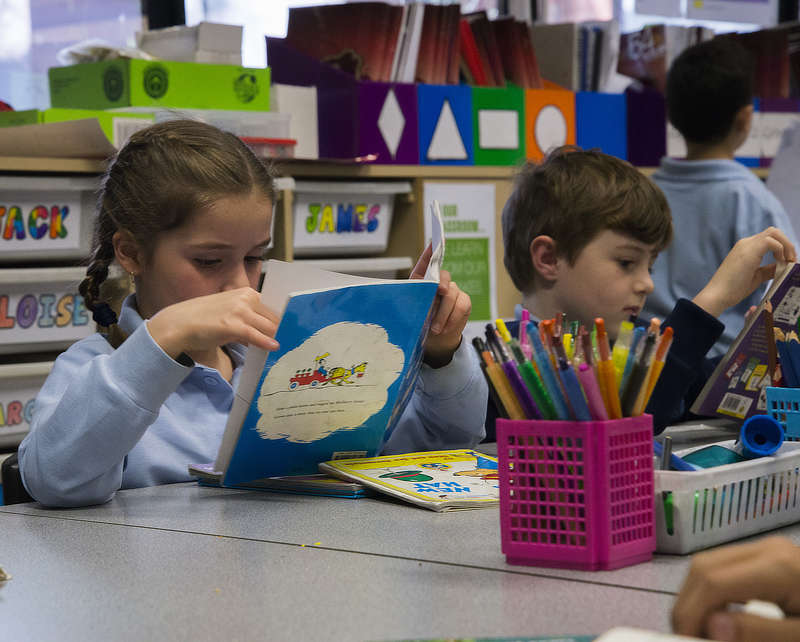
Maths
Mathematics is a powerful means of communication, which helps us represent, explain and predict events in our world. It is a means to prepare for and enhance work skills which are fundamental to everyday living.
Our mathematics program aims to provide students with the confidence and competency to deal with maths in their daily life. Student’s individual abilities are assessed and learning opportunities are catered to their needs. This includes using technology and other activities to further support their learning.
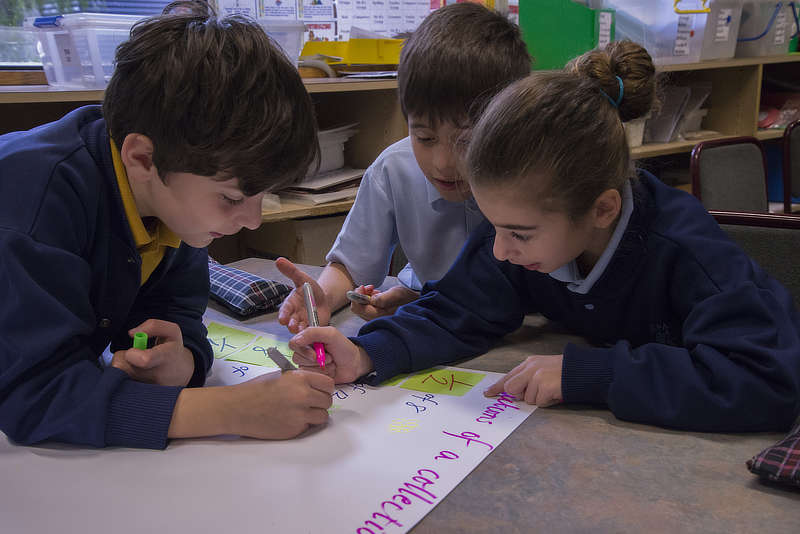
Religious Education
Jesus is our leader
At St.Paul’s Catholic Primary School, we acknowledge Jesus as our leader and are inspired to continue this journey in the spirit of St. Paul and the sisters of Mercy. All teachings underpin the Gospel values, whilst incorporating God’s presence into our daily lives through sacramentality.
Religion at St Paul’s brings together the essential components of Knowledge and Understanding, Responding and Reasoning, and Personal and Communal Engagement. We aspire to educate and to challenge our students to recognise injustices and help others to rise above them Children address the needs of people in the parish and wider community through school initiatives including “The Mini Vinnies Group”. Interwoven into this is sacramentality, whereby students can identify God’s presence as a real experience, enhancing children’s understanding that God is present in everything around us.
Using the text To Know, Worship and Love, and the Gospel, children are provided with the opportunity to engage and celebrate the Good News through reflection, prayer and action. The curriculum complements the work of the parish and parents to strengthen student’s relationship and belief in Christ as a person in their daily lives.
Sacraments at St Paul’s are offered to children at the following year levels:
Penance- Year 3
Eucharist- Year 4
Confirmation- Year 6

STEM
Science, Technology, Engineering and Mathematics.
At St. Paul’s we aim to give our students all the necessary skills they will need in our contemporary world. STEM, the integration of Science, Technology, Engineering and Mathematics, learning provides students with important skills for their everyday life and well into the future.
Computational thinking; breaking problems into small parts, using pattern recognition, determining and prioritizing important information and using algorithms to solve simple problems is taught from Prep. Children of this age group have a natural and innate curiosity about the world they live in, which makes this the perfect time to begin!

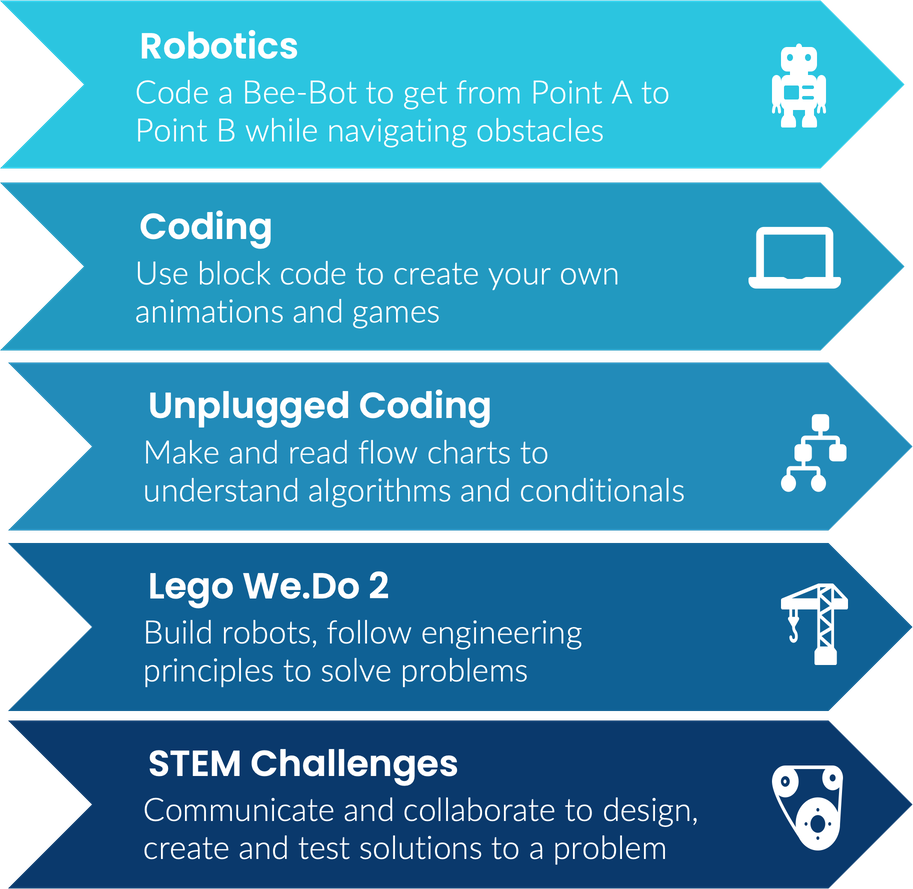
Junior students can look forward to using our robot BeeBots, writing scripts of code using Scratch Jr. and unplugged activities like solving maze problems, reading algorithms and following flow charts. These activities promote essential learning skills, including; critical thinking, creativity, resilience and persistence.
As students move through year levels, we strive to deepen their understanding of the world and expand their thinking skills. They will use a range of processes to scaffold their learning, working towards applying these skills independently by the time they reach Year 6. These processes include; design process, research process, scientific process, field study process and problem-solving process. Seniors use a variety of tools, including Lego WeDO 2.0, to utilize engineering principles and create models to solve problems. Using a range of programs, students develop coding-specific skills that can be transferred to most real word scenarios. These include;

We hold an annual STEM-based competition ‘St. Paul’s Young Designer Award’ to coincide with National Science Week. This event encourages families to join the fun and work together to develop and apply their STEM knowledge. Students are given options to cultivate their passions in this area such as STEM clubs, Lego clubs and coding clubs.
Science
Science education at St Paul’s School is designed to develop in students the ability to ask questions and to find answers about the physical and biological world. The Science curriculum is based on the Victorian Curriculum (2016). It focuses on two main Dimensions:
- SCIENCE UNDERSTANDINGS
- SCIENCE INQUIRY SKILLS
A variety of teaching styles are employed to cater for student’s learning styles. These include teacher directed activities to conducting experiments, attending excursions, and conducting mini campaigns in the local community, to name a few.
Our students are encouraged to develop critical and creative thinking skills and challenge themselves to identify questions, apply new knowledge, explain science phenomena and draw evidence-based conclusions using scientific methods.

ICT
Technology, when used effectively provides a unique and powerful opportunity to enhance student learning across the curriculum.
At St. Paul’s we believe that the use of ICT is an integral and necessary part of our student’s education. We aim to make this a positive experience so students feel a sense of achievement and confidence. All students have access to various digital technologies at school and this is used to enhance their learning.
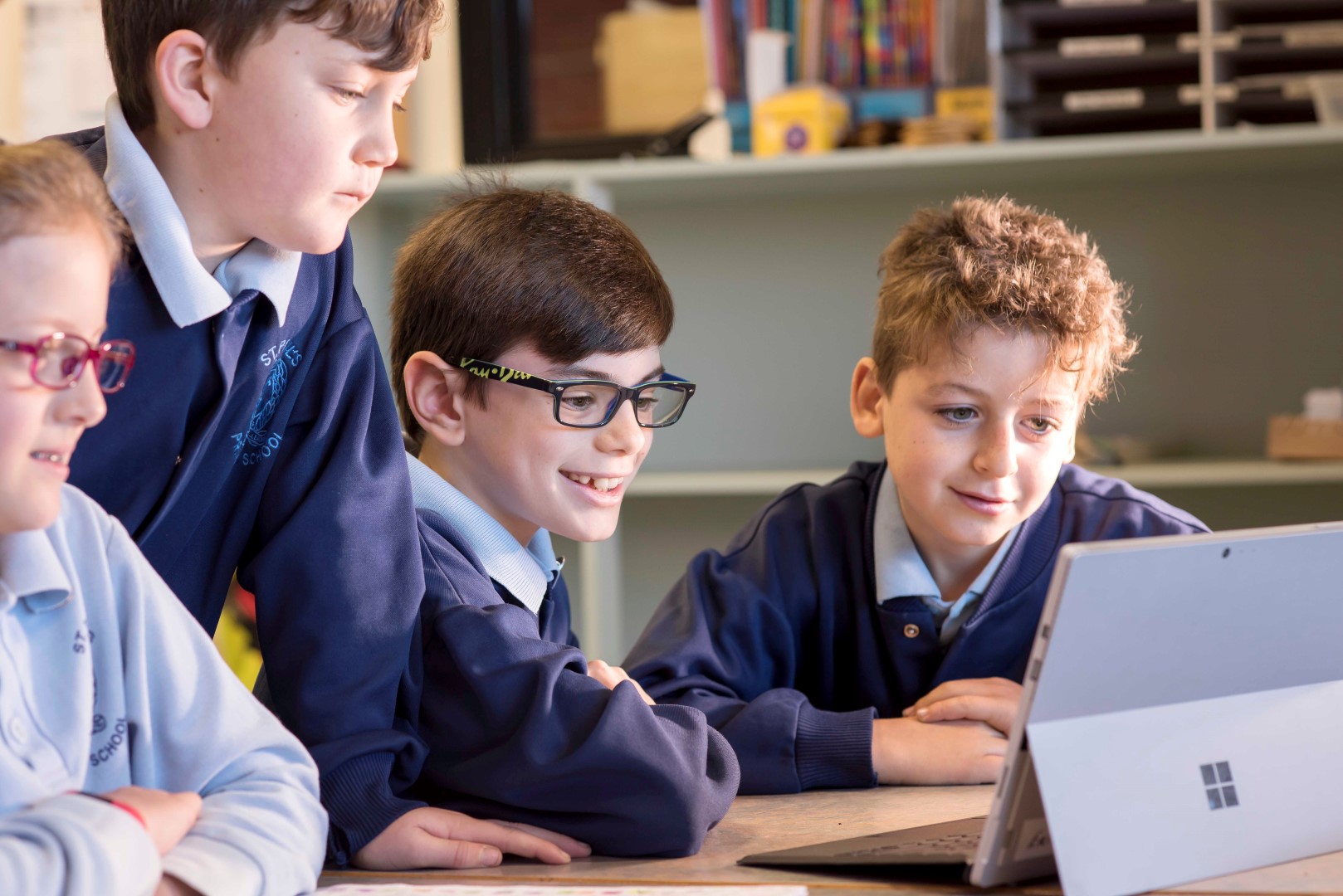
Performing Arts
St Paul’s provides a Performing Arts program for all students, that enables them to gain skills and competencies in Dance, Drama, and Music.
Children participate in a Performing Arts lesson once a week.
Students are able to explore the Performing Arts in an energetic, exciting and encouraging environment and are given opportunities to learn about various instruments; dance styles and cultures; drama elements and forms. Children are encouraged to use their imagination and creativity as they build and present performances across the areas of Performing Arts.
The Performing Arts program also includes an annual Christmas performance which allows the children to draw on the knowledge and skills developed throughout the year. This is a highlight for the school community as the students can perform in front of their peers, family and teachers. Each class performs their own musical or acting arrangement. Students also have the opportunity to present their work at weekly school assemblies.
Students also have the opportunity to undertake private music tuition through
ABC Music Group which offers an instrumental music program at St Paul’s. Children have the opportunity to attend these lessons on a weekly basis. Additional tuition fees apply.

Visual Art
The Visual Arts program at St Paul’s Primary School is designed to encourage and challenge students to achieve their artistic potential in an enjoyable and supportive environment. Students develop their creativity and imagination as well as refine their practical and fine motor skills. They learn to make choices when experimenting with materials, tools and techniques. Students attend visual art lessons once a week.
During their time at St Paul’s the students will explore a wide variety art mediums such as drawing, painting, printmaking, collage, clay, sculpture, construction, textiles and photography. Students will learn to communicate through their art, respond to the artworks of others and gain appreciation of well known artists.
The artworks produced by our talented students are celebrated and displayed around the school, as well as featured in our newsletter. school website and social media.
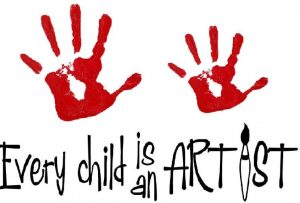
LOTE
All children at St. Paul’s are given the opportunity to study a Language other than English (LOTE).
Every week, all students from Foundation to Year 6 engage in weekly Italian lessons. We are fortunate enough to have a specialist LOTE room, which is well equipped with resources that include an interactive board, games, printed materials, Italian picture books and English/Italian dictionaries that are readily available for student use. Students also regularly access research material and language learning apps and activities via the school’s tablets and laptops.
During LOTE classes, students actively participate in interactive dialogue using simple language to talk about themselves, their family, friends, hobbies, interests, school life and routines. Using familiar language and structures, students create short written texts and role-plays related to the topics being studied. All students are encouraged to use as much Italian as possible when sharing ideas and thoughts with each other. Incursions and cultural immersion activities such as cooking lessons, Italian performances and Italian days are also part of the curriculum.
Through their immersion in the Italian language students increasingly notice the many similarities and differences that exist between Italian and Australian cultural practices. Students also notice similarities and differences in the patterns of the Italian language compared to English and other familiar languages. Together they learn to recognise, appreciate and respect these cultural differences as they grow in their understanding of each other.
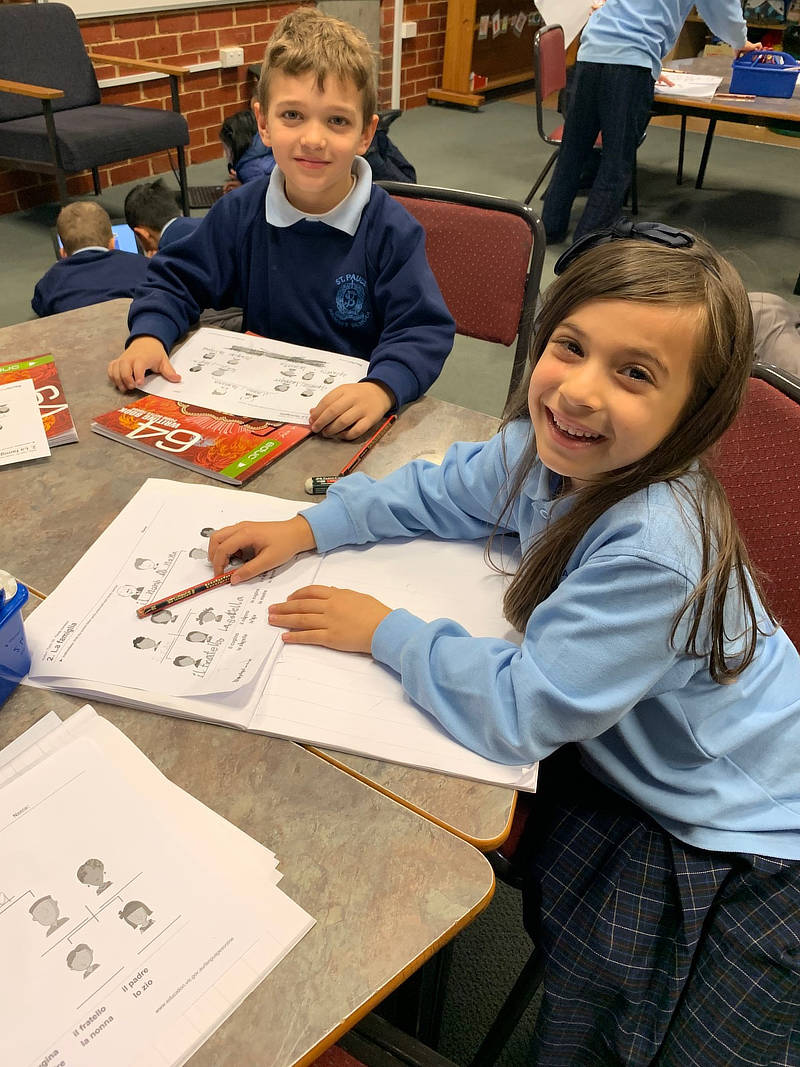
Physical Education
At St. Paul’s, our Physical Education and Sport Program is all about active participation and skill development in a positive and encouraging environment. The children participate in weekly Physical Education sessions, that focus on skill development and cooperation, All children are supported and encouraged to display sportspersonship and to be their best in all that they do in these areas. In our program the children are exposed to a wide range of games and sports that encompass strategies, team work, personal well being and thinking skills.
Some of the programs are:
- Perceptual Motor Program (PMP): this program encourages
the younger children to learn about their bodies and how to move in a variety of ways; - Interschool Sport: Senior year levels play other primary schools in our district though State School Victoria (SSV)
e.g. netball, soccer, and football, basketball. - Interschool sports and carnivals: Our students from year 3-6 compete in sports carnivals in athletics and marathon
- Invitation to trial in SSV sports teams.
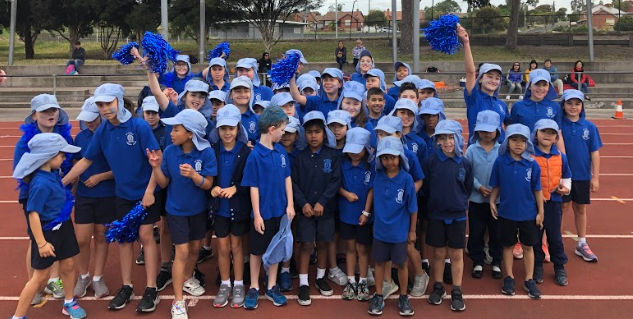
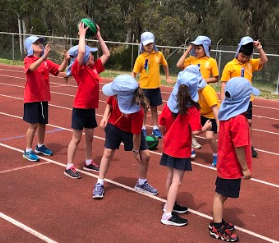
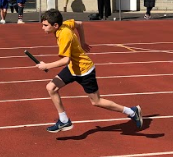
Multi Tiered System of Support
Response To Intervention
Every student has the right to succeed and be supported in their learning journey. Saint Paul’s uses a Multi Tiered Support System (MTSS) to ensure that targeted intervention support is provided for students who may be at risk of falling behind in their learning. This Response To Intervention model uses evidence based assessments to gather data to address the specific needs of individual students. At the heart of our school is the firm belief that through early intervention, every student can have the opportunity to be supported to achieve their full potential.


‘A multi-tiered system helps schools identify struggling students early and allows them to intervene quickly so that within a cohort, the gaps don’t become any larger than what they might already be. By providing them with the support that they need, we’re reducing, if not removing, barriers to learning.’
(Australian Education Research Organisation)
St Paul’s has partnered with Speech In Schools for additional support in literacy, focusing on oral language and early reading skills.
Tier 1 – Whole Class Explicit Instruction
Screening and assessment is used to identify the needs of students.
Tier 2 – Small Group Targeted Support
Progress monitoring is used to assess how students are responding to the intervention support. Tier 2 is in addition to Tier 1 instruction and is designed to provide students with extra support with an increased intensity and frequency.
Tier 3 – Intensive Support (1:1)
Specialised assessments are conducted to determine the intensive support required for the student.


